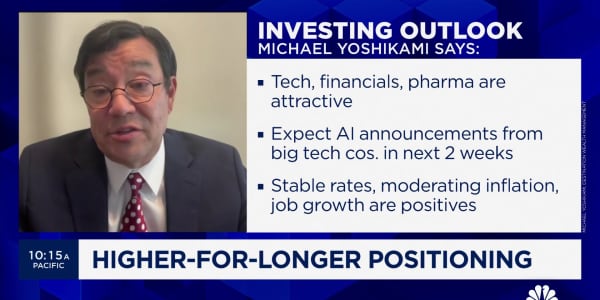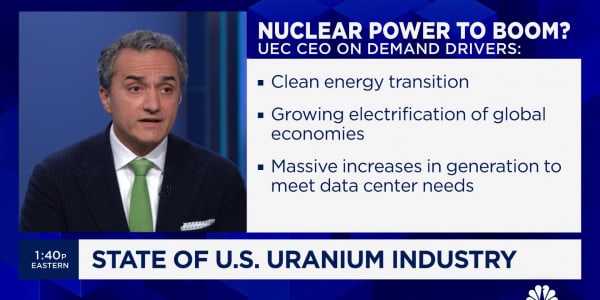When the President spoke on Monday, the markets ticked down with every word that he uttered. So is America suffering because of a lack of effective leadership? I asked Veronique de Rugy, a Senior Research Fellow at the Mercatus Center at George Mason University, her thoughts.
LL: What does the downgrade mean for the U.S. Jobs market?
VdR: It is impossible to predict the extent of damage at this point, in part because the economy is too interconnected and complex. The impact of the downgrade on interest rates, for example, depends on how investors incorporate this information and whether or not they had anticipated this event.
But there is one area where we can be sure the downgrade will have consequences (likely with very negative trickle-down effects): The $130 billion in municipal debt. A few weeks ago, Moody’s announced that some 7,000 top-rated municipal credits would have their ratings cut if the U.S. government loses its AAA grade. That means states and municipalities are likely to continue laying off employees, and may have a hard time paying contractors. Also, many private entities, such as pension funds and insurers, will soon be affected by the downgrade, with potential negative consequences for the jobs market.
LL: What kind of impact will this have on an already pathetic GDP?
VdR: The market could decide to ignore the downgrade in the short run.
However, by maintaining a negative outlook on the U.S. credit rating, S&P has served notice that a further downgrade is likely if Washington can’t show a significantly improved debt path. (This will require fundamental entitlement reform, tax reform, and budget process reform—the latter of which is needed to convince markets promised changes will actually be realized.)
These potential future downgrades—and skepticism about lawmakers’ willingness and ability to make necessary changes—could have a chilling effect on the economy. So unless we adopt a credible plan to reduce the debt-to-GDP ratio to regain our triple-A ratings, investors could stop or slow down their investments into the U.S. in favor of less risky countries. This would lead to higher interest rates, and negatively impact GDP.
LL: Because of higher borrowing costs that means there will be less money in the system. What kind of trickle effect will this have on consumer spending? How much will be taken out of the system?
VdR: We know that prior to the downgrade, the Congressional Budget Office projected that, driven by sustained deficits, interests payments would rise from $215 billion in 2011 to roughly $1 trillion in 2021. That’s already an enormous increase, especially since the country is unlikely to grow as was projected and revenue collection doesn’t improve as a result. Also, interest payments are projected to grow from 1 percent of GDP today to 40 percent by the time my children will retire.
What’s more, it’s not clear what impact this downgrade will have on interest rates in the short run. Even if rates don’t go up immediately, it won’t last. First, investors know that if lawmakers aren’t willing to pay down debt with spending cuts or tax increases, the Federal Reserve is likely to start printing money, ask for an inflation premium, and interest rates will go up. Second, investors understand that the S&P downgrade could be the beginning of a series of downgrades. In other words, things are likely to get worse.
This comment from the Wall Street Journal sums it up:
“Just as important as the initial market reaction, some said, was what the downgrade fallout may be months from now. ‘People who say this move doesn’t matter are assuming it stops with Friday’s announcement,’ said Jim Bianco, president of Chicago-based Bianco Research. ‘I’m saying it only began on Friday.’”
Once interest rates start going up, debt payments will explode even further than projected. This will increase deficits, and in the longer run, squeeze out other government spending. The U.S. is particularly vulnerable to variations in interest rates since our debt is so large and so much of it is short term.
An increase in interest rates also has a direct impact on American families and businesses. As the cost of borrowing goes up, it becomes more expensive to borrow capital to start or expand a business, or to have access to capital to send your children to college.
LL: You say that as long as the United States is perceived as a safer place to invest than other countries, the impact of the downgrade could be tamed? What happens if Europe gets its financial house in order?
VdR: Sadly, it is hard to see a painless and quick way out of the mess the Europeans are in. If Greece defaults or gets out of the Eurozone, the contagion could take down Italy, Spain, or Portugal and other countries. There simply isn’t enough money to bailout European governments from their past fiscal follies. Yet this is little relief for America: U.S. banks have an important exposure in Europe and any bank run there will seriously affect our financial system.
Economic growth alone won’t get our governments out of this mess. And yet, the debt will have to be paid. It means that Europe, like America, will have to make the hard choices that they have avoided for decades and reform its bloated welfare programs. It will be difficult, but can’t be postpone any longer.
A Senior Talent Producer at CNBC, and author of "Thriving in the New Economy:Lessons from Today's Top Business Minds."
Questions? Comments? Email us at
Follow on Twitter @ twitter.com/loriannlarocco
Follow NetNet on Twitter @ twitter.com/CNBCnetnet
Facebook us @






